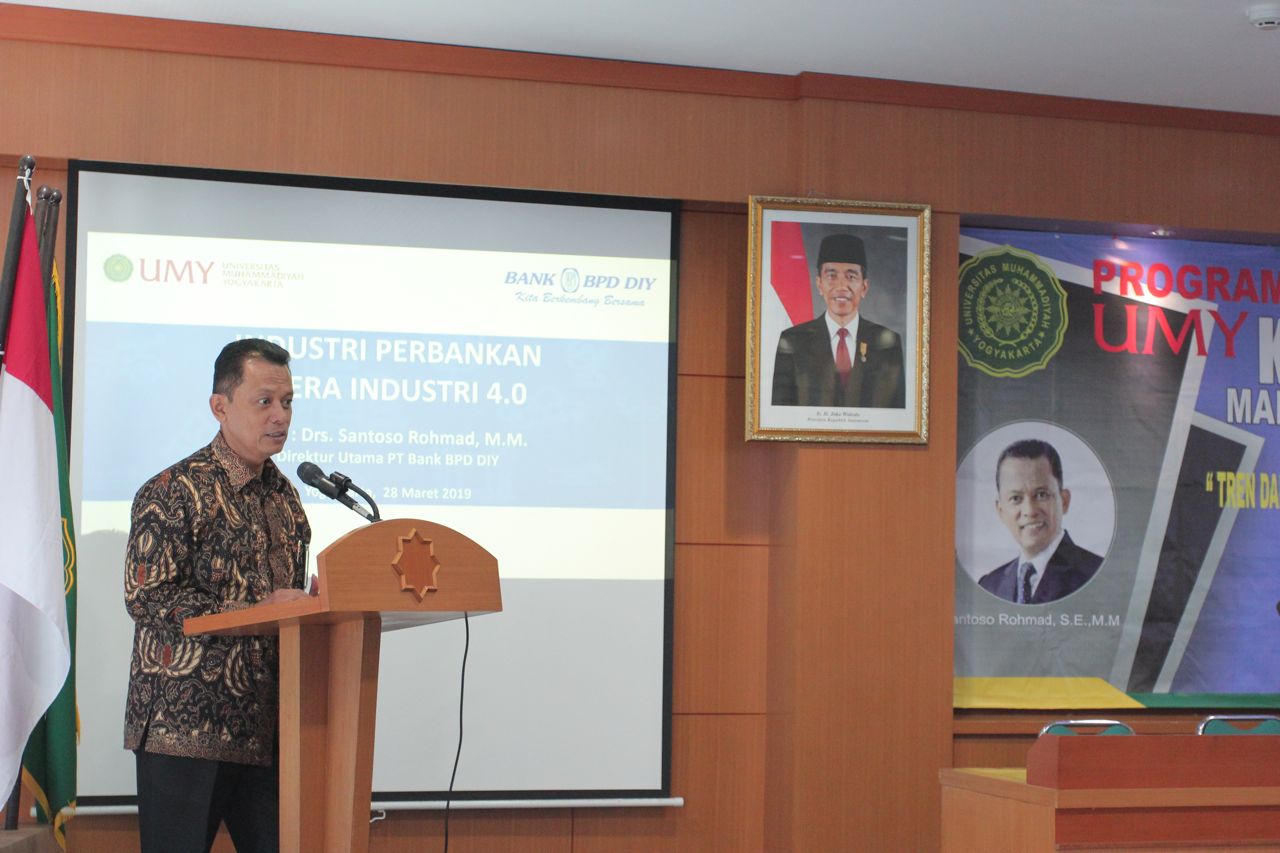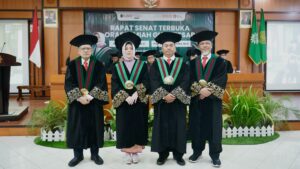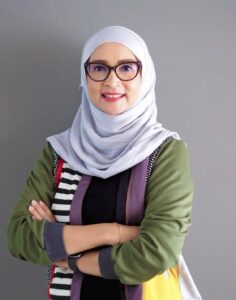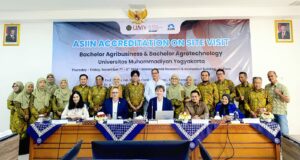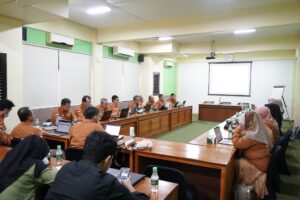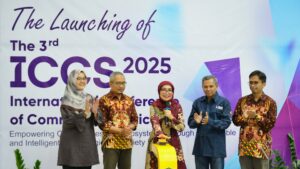Graduate School of Universitas Muhammadiyah Yogyakarta (UMY) conducted the first lecture on Thursday (28/3) at Amphitheater of Building of Graduate School, floor 4, to welcome new students of batch 2018/2019. An invited speaker in the lecture was Director of Bank Pembangunan Daerah Daerah Istimewa Yogyakarta (BPD DIY) Drs. Santoso Rohmat, M.M.
At the lecture on Banking Trends and Issues in Industrial Revolution 4.0, Santoso explained that economic sharing is easier in this era. “Industrial revolution 1.0 began in 1784, followed by 2.0 in 1870, 3.0 in 1959, and now 4.0. Economic sharing is much easier in the Industrial Revolution 4.0. For instance, economic resources have been managed by youths who have great creativity, thoughts, and competitiveness. Sophisticated technology eases all areas including banking,” declared Santoso.
Santoso added impacts of Industrial Revolution 4.0 on businesses in Indonesia. “The era affects business people and Indonesian people. For instance, the business people can find efficiency and novel means of each value of a product. The examples of economic sharing in industries are Uber, Airbnb, Grab, and Gojek. Besides, impacts of the Industrial Revolution 4.0 on community is that the people can easily gain information can compare various products,” he maintained.
“Nevertheless, all people are advised to concern with challenges in the Industrial Revolution 4.0 such as a shift of job so that they have to adapt to changes which may occur in this era,” emphasized Santoso.
Santoso also informed risks and effects of disruptive technology. “The strategic risks may other and diminish businesses at one time if people cannot cope with it. Hence, broadening scopes of risk management is essential. Companies should be more resilient and adaptive so that they can survive and succeed in VUCA (volatility, uncertainty, complexity, and ambiguity). Thus, it is necessary to apply skills which are innovative, anticipatory, and responsive in managing the disruptive technology. Indeed, we have to be able to turn threats into opportunities to sustainably grow,” he stressed.
